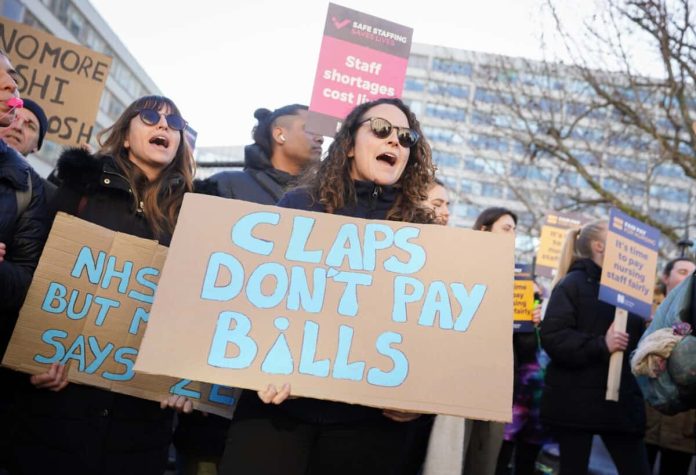Contrary to claims made by the government and others, a real-terms pay rise for public sector workers would not meaningfully increase inflation, according to new analysis by the IPPR think tank
A 10.5 per cent pay boost to restore real pay to 2019/20 levels – higher than the rises announced by the government last week – would add at most 0.14 percentage points to inflation if funded by borrowing. This undermines objections that higher public sector pay would cause significant demand-driven inflationary pressures, the IPPR report says. The effect would be smaller still, approaching zero, if the additional pay boost was financed from taxation.
The report also reveals that if an average public sector worker were to receive a pay award around the 6 per cent announced last week they would still be £1,400 worse off this year on average than just before the pandemic, because wages have not kept up with prices. Pay for public sector workers reached its lowest point in nearly two decades last year, when adjusted for inflation.
With real-terms pay in decline since 2010, the public sector faces a triple crisis, the report says. Below-inflation pay rises have hit living standards, contributing to the recruitment and retention crisis that is undermining the quality of public services. Soaring inflation has left workers with significantly lower purchasing power.
With poor recruitment and retention of staff, the overall quality of public services is declining, leaving the UK lagging behind its international peers. There are currently more than 100,000 unfilled vacancies in the NHS, recruitment into teacher training programmes is 40 per cent below DfE targets and the number of civil servants moving department or leaving their jobs is at its highest level in at least a decade.
IPPR is calling for a 10.5 per cent average uplift this year to restore public sector pay to 2019/20 levels, at an additional cost of £7.2 billion beyond last week’s pay offers.
This should be followed by a commitment to raise public sector pay above the inflation rate every year for the next five years, the report says. As this is day-to-day spending, IPPR says it should be funded through tax increases and offers options for delivering this fairly (see Note below).
Joseph Evans, researcher at IPPR and one of the report’s authors, said:
“It’s wrong to claim that giving the public sector a more meaningful pay rise will further embed inflation. Research shows that there is very little inflationary impact from a significant pay rise, but that the need to stop the fall in living standards for public sector workers is urgent.
“Without an inflation-matching pay rise the public sector will continue to face a triple crisis of falling living standards, a recruitment emergency and declining quality of public services.”







